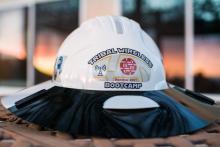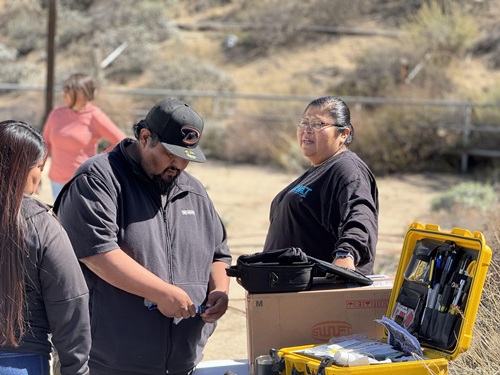Jemez Pueblo’s JNET Project Celebrated for Expanding High-Speed Internet to Rural Tribal Homes
At the New Mexico Infrastructure Finance Conference last week, the Pueblo of Jemez Tribal community was honored with a Project Excellence Award for its broadband project, building out a fiber network to reach more than 670 unserved or underserved households, Tribal departments, programs, and businesses.
In presenting the award, Jeff Lopez, Director of the New Mexico Office of Broadband Access and Expansion (OBAE), highlighted the transformative work the Tribe has been doing since it received an $8.6 million grant for the $15 million project, courtesy of the American Rescue Plan Act (ARPA) in Nov. 2023.
In accepting the award on behalf of the work being done by the tribally-owned and operated Internet service provider known as JNET, Governor George Shendo Jr. of Jemez Pueblo, said in a statement:
“We are honored to be recognized by the Department of Finance and Administration for its inaugural broadband Project Excellence Award. We are excited to fully realize all the opportunities our broadband project will bring to current and future generations in Jemez and the surrounding communities.”
Since January of 2024, JNET has been constructing its fiber-to-the home (FTTH) network, building-out more than 45 miles of fiber to date. More than 40 homes have already been lit up for service with the project expected to be finished in 2026.


















